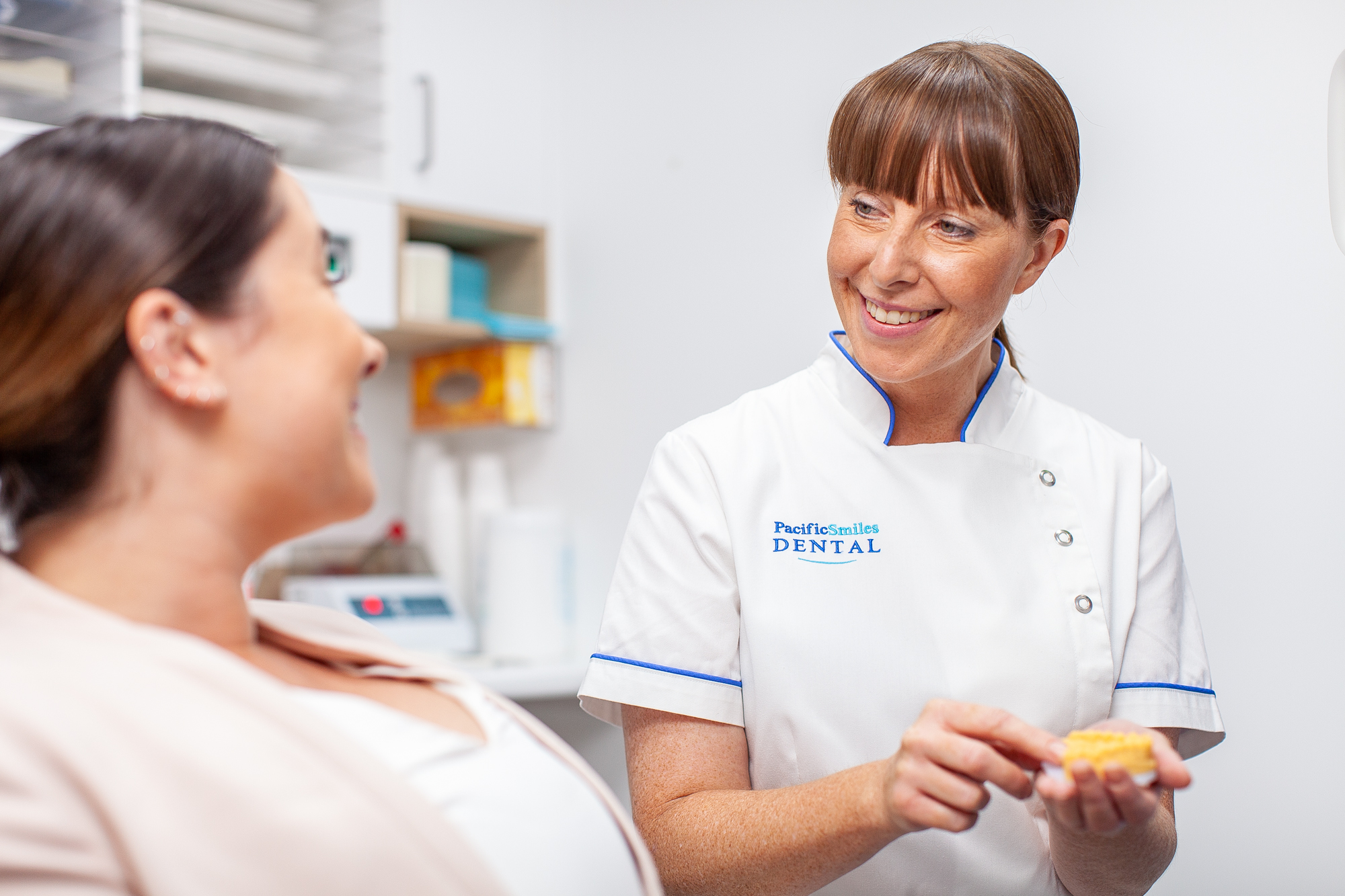 20 September 2022
20 September 2022
Most of us can easily recognize sugar in its processed form. Sitting prettily in a sugar bowl, those brown and white crystals don’t claim to be anything other than what they are. But sugar can also be a master of disguise, hidden in many of the foods and drinks we consume. And no matter how it’s presented and whatever it’s in, sugar has the same effect on our body and importantly, our teeth.
Why Can’t I Stop Craving Sugar?
One of the main issues with sugar is that it tastes good. As humans, we’re wired to seek pleasure and reward. Sugar, in all its forms, has this feedback loop all worked out. When something sweet lands on our tongue and sends a message to our brain, Dopamine, the feel-good chemical, is released into our bloodstream. Simply put, when we eat sugar, we feel good. And no matter how old we are this desire for sweetness never leaves us. However, sugar, no matter what our age or stage of life, has a consistently negative influence on our teeth.
What Causes Tooth Decay?
Tooth decay, also known as dental cavities, happens when acid on the tooth’s surface pulls minerals out of the tooth, causing it to weaken. Sugar + bacteria = acid, causing holes to appear as they dissolve the hard tissues of the teeth. Once a tooth is decayed, it ordinarily needs drilling and filling to halt the decay and strengthen the tooth. And once decayed, a tooth never has the same integrity or strength as when it was intact. More complex restorations often become inevitable over time.
Caring For Your Children’s Teeth
For many reasons, baby teeth are precious. Setting up healthy eating and drinking habits at a young age is essential to having a positive impact upon a child’s ongoing oral health. Baby teeth set the template for permanent teeth to erupt and ideally, support a healthy environment of flora in the baby’s mouth. The introduction of too much sugar, especially sugar found in sweet fruit purees and juices can have a larger impact upon your baby’s teeth than you may realise.

How Can I Look After My Baby’s Teeth?
Tooth decay in baby teeth can set the stage for ongoing issues with your child’s teeth, As mentioned they set the template for your child’s adult teeth in terms of placement but it’s also important to realise that too much sugar can not only cause cavities in your child’s baby teeth but is also likely to cause increased cavities in their adult teeth as well.
- If you can see a tooth, it needs cleaning. Clean their teeth at least once a day with a soft brush or even a damp cloth
- Start using a children’s toothpaste from around 18 months of age as this will help protect their teeth even further
Aim to stop your baby’s bottles from around 12 months of age and offer cups which can help to ensure your baby’s teeth placement is not impacted. Try not to give bottles of juice or milk to go to bed with. Milk contains lactose, a form of sugar and when left sitting on the teeth can lead to an increased risk of cavities. Always brush your baby/toddler’s teeth before they go to bed to avoid this.
How Can I Look After My Older Child’s Teeth?
You have one of the most important roles in your child’s dental health when it comes to monitoring your child’s diet and ensuring their sugar intake is low. Keep sweet treats for special occasions. Let your baby/toddler practice their own tooth brushing but always clean them yourself as well. Children don’t have the hand dexterity to do a good job until they’re around 8 years of age.
Three Top Tips To Care For Older Children’s Teeth
- Discourage snacking between meals. Each time this re-starts the cycle of food + bacteria = acid, causing decay. If they’re hungry, cheese, milk and dairy foods are better choices.
- Encourage water as the best drink between meals. Sports drinks, cordial, soft drinks and energy drinks are all high in sugar and lead to decay.
- Use a children’s fluoridated toothpaste until five years of age. Encourage them to spit but not rinse.
How Can I Support My Older Child To Care For Their Teeth?
Your influence is still important, even though your child is older. This is an age when hunger peaks and extra food and snacks help to fuel growth. Snacking especially is a risk factor for tooth decay and many snack foods are high in sugar and refined carbohydrates.
Three Top Tips To Care For Young Adult’s Teeth
- Encourage your teenager to read food and drink labels so they can become used to making informed decisions about what they eat and drink.
- If your child has braces, encourage them to brush after every meal. It’s important to limit sweet and sticky foods when braces are on because of increased challenges with teeth cleaning. A soft-headed toothbrush held at a 45-degree angle to the gums and then brushed downwards will help to clean the top and bottom brackets. Experiment with different floss options which discourage shedding and retain the shape and function of the floss.
- Make regular dental appointments. For many young adults, there is an increased risk of decay once parents are no longer monitoring and managing their child’s oral health.
How Can Adults Best Look After Their Own Teeth?
With many years under your belt when it comes to taking care of your teeth, it can be easy to become a little complacent. Many adults have already had restorative work on their teeth by the time they reach their 30’s and 40’s and while you may be feeling like your teeth are still going strong, this does not mean they no longer need attention. The hidden sugar in many of the foods and drinks we consume today, even those which claim to be sugar free can still trigger harmful cavity-causing reactions from our teeth. Monitoring and maintenance are essential to ensure teeth and gums remain healthy and to identify small issues before they become big ones. Sugar is still a precursor to decay and its effects no less detrimental than they are when we are children.

Three Top Tips To Care For Your Adult Teeth
- Brush at least twice each day and ensure you floss to remove any remnants of sugar and food between your teeth.
- Be mindful of hidden sugars in food and drink – read labels and be suspicious of ingredients with ‘ose’ at the end (meaning sugar) – for example fructose or sucrose
- Visit your dentist regularly. As we get older, dental maintenance has the primary goal of retaining teeth and maintaining healthy gums.
Across All Ages
Sugar and its effects do not become less influential as we age. And tooth decay can happen at any age in our lifespan. The sugar we eat and drink has long lasting effects on our body long after it has left our mouth. Visit your dentist regularly and learn as much as you can about caring well for your teeth and gums. Building an ongoing rapport with your dentist will not only help you feel more comfortable in raising any oral health issues, but your dentist will also be more aware of the ongoing changes taking place to your teeth and gums over the years.





